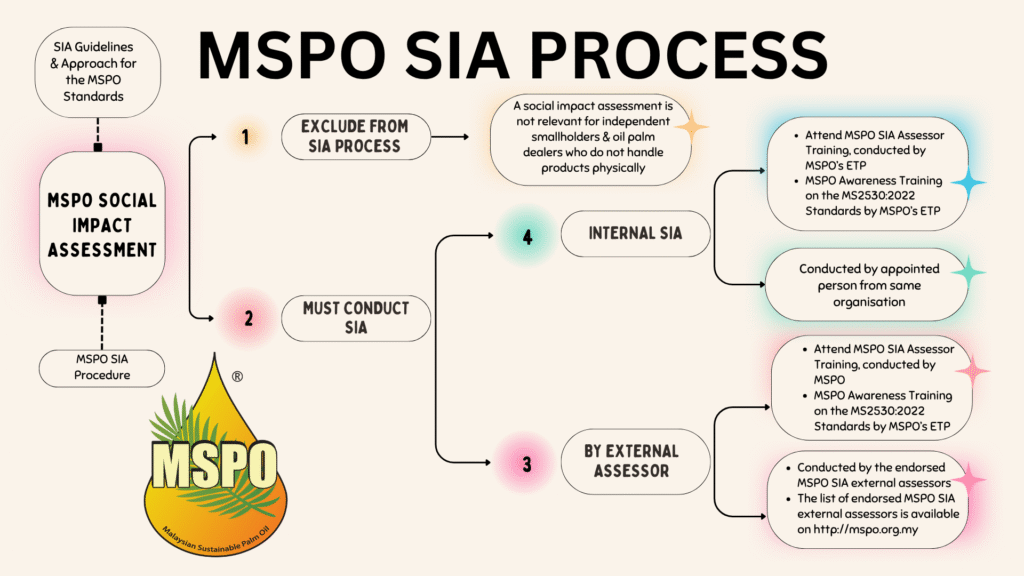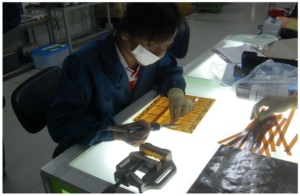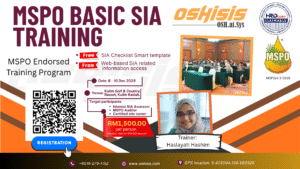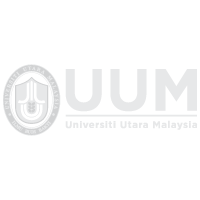The Malaysian Sustainable Palm Oil (MSPO) Certification Scheme requires certified entities to understand and implement the Social Impact Assessment (SIA) process to identify, evaluate, and manage potential social impacts within their operations. This ensures ethical, inclusive, and sustainable palm oil production aligned with national and international sustainability goals.
This page summarizes the MSPO SIA Process based on:
- SIA Guidelines & Approach for the MSPO Standards (Clause 4.4.1)
- Official MSPO SIA Procedure by the Scheme Owner
- OSHISIS Comparison of MSPO SIA vs SIA for Malaysian Development Projects
- Why Conduct SIA? Read More
Step-by-Step MSPO SIA Process
Step 1: Exclusion from SIA Process
Entities not required to conduct SIA include:
- Independent smallholders
- Oil palm dealers who do not physically handle products
This is because their activities do not pose significant or direct social impacts to surrounding stakeholders.
Step 2: Must Conduct SIA
All other MSPO-certified operating units must conduct SIA. This includes plantations, estates, mills, and any entity that physically handles products or interacts with surrounding communities and workers.
From here, two options are available:
Option 1: Internal SIA
Internal SIA is conducted in-house by a trained and appointed person from the same organization. The following criteria must be fulfilled:
- Attend MSPO SIA Assessor Training, conducted by MSPO’s ETP (Extension & Training Provider)
- Complete MSPO Awareness Training based on the latest MS 2530:2022 standards
This path is suitable for organizations with sufficient internal capacity and understanding of MSPO’s social requirements.
Option 2: By External Assessor
Organizations may also engage external MSPO-endorsed assessors for conducting the SIA. This is particularly relevant when:
- In-house expertise is limited
- Independent verification is preferred
Requirements:
- External assessor must be formally trained and endorsed by MSPO
- List of MSPO-approved external assessors is available at mspo.org.my
This method enhances impartiality and ensures alignment with scheme owner expectations.
Why Conduct a Social Impact Assessment (SIA)?
A well-executed SIA helps organizations:
- Understand how operations affect employees, local communities, and other stakeholders
- Identify potential risks (e.g. land disputes, labor conditions, safety concerns)
- Develop proactive management plans to mitigate negative impacts and enhance positive ones
- Strengthen social license to operate and improve stakeholder relationships
- Demonstrate compliance with MSPO Clause 4.4.1 on social sustainability
Learn more: OSHISIS – MSPO SIA
Additional Resources & Tools
- SIA Guidelines for MSPO Standards (Clause 4.4.1)
- MSPO SIA Procedure Document
- Comparison: MSPO SIA vs. Malaysia Development Project SIA
- OSHISIS Certified MSPO SIA Training
Summary
| Entity Type | SIA Requirement | Conducted By |
| Independent Smallholders / Non-handling Dealers | Not Required | N/A |
| Other Operating Units | Required (Clause 4.4.1) | Internal Staff (if trained) or External Assessor |
Implementing SIA isn’t just about compliance — it’s a vital step toward socially responsible palm oil production under the MSPO certification framework.
For support, training, or assessor services, contact OSHISIS Solution Centre — your trusted partner in sustainable palm oil certification.

